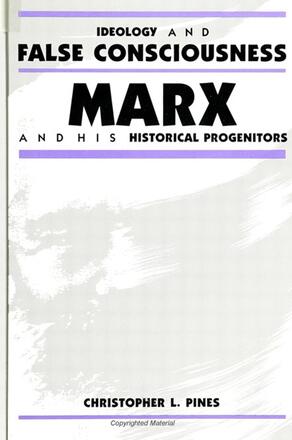
Ideology and False Consciousness
Marx and His Historical Progenitors
Alternative formats available from:
Description
In this book Christopher Pines demonstrates that Karl Marx conceived of ideology as false consciousness. He shows how the different meanings of false consciousness found in the writings of Marx and Engels reflect the influence of the views of the Baconian-French Enlightenment and of Hegelian Feuerbachian philosophies. Pines argues that, for Marx, the diverse senses of false consciousness all generally denote a social consciousness that takes certain false things to be true regarding matters of significance to class-divided societies.
Christopher L. Pines is Assistant Professor of Philosophy at the University of Rio Grande.
Reviews
"This is a thorough and carefully reasoned argument for a clearly articulated thesis, namely that Marx's concept of ideology is epistemological, and that it is not at variance with Engel's characterization. This is the best-developed counterargument to McCarney's book on Marx on ideology. The examination of the historical sources of Marx's conception in the philosophes and in Feuerbach is persuasive and complete. It will serve as a locus classicus for the discussion on its topic. " — Marx W. Wartofsky, The City University of New York
"In my opinion, this book is a significant achievement, and should make a major contribution to Marx scholarship. Above all, it provides a very original method of analysis. In a highly creative manner, Pines combines a presentation of the historical predecessors of Marx's conception of ideology as 'false consciousness' with a complex, many-leveled analysis of Marx's theory. " — James Lawler, State University of New York at Buffalo